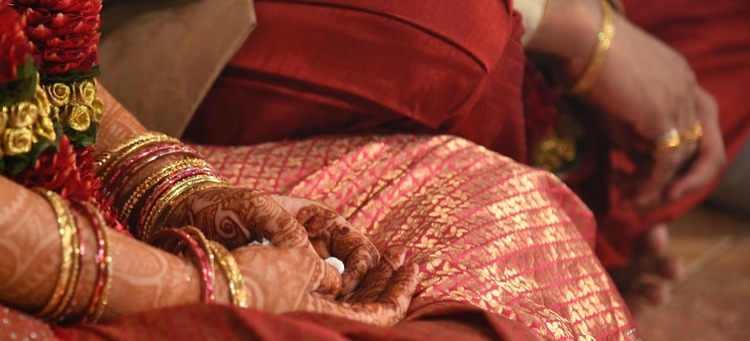Indian matrimonial sites show shift in attitude towards intercaste marriage: Study

- Country:
- United States
Indians -- especially those living in the northern states of the country -- are becoming more open to having an intercaste marriage, according to scientists who analysed data from matrimonial websites. The research also showed that the Indian diaspora in the US who use the site are significantly less open to intercaste marriage than their counterparts in India, suggesting a focus on maintaining cultural identity as they live abroad in places where they have minority status.
The researchers from University of Michigan in the US used data from 313,000 profiles from a major Indian matrimonial website. Among the information people fill out on the site is a direct question about whether they are willing to enter into an intercaste marriage. "Despite a lot of effort from the government and social groups, caste remains an important part of people's lives," said Ashwin Rajadesingan, from University of Michigan. "This caste question is actually on the first page on their questionnaire which really emphasises how important some people consider it," said Rajadesingan.
"People on the site are looking to get married, so their response is a great way to get their honest opinion," said Rajadesingan. For centuries, Indian marriages are formed based on caste, education, affluence, horoscope and other physical characteristics. The result has been a society that creates static social classes, resulting in perpetually disadvantaged groups that not only are denied dignity and self-respect but resources, jobs and education. Governmental incentives and societal movements have attempted to counter caste attitudes but most research to date has suggested that there has been little change in attitude and practice.
Previous research has found some openness from those of an older age, with different signals about the effects of increased education, living in a rural area, having an employed mother and being a member of a lower caste. "One of the big advantages of our work is that we can look at all of these factors together through the information people provide to get a holistic picture of demographics," said David Jurgens, also from University of Michigan.
"Most studies only get to look at a few aspects due to data collection challenges," said Jurgens. "However we found that younger generations are more open to intercaste marriage, which is pointing to a generational shift in attitudes," he said. "We also find it's part of a broader cultural shift away from looking for a spouse that matches family-desired qualities to those things you yourself want to see -- looking for someone who is funny rather than someone who will take care of your mother," he added. For the most part, accurate measurements of public opinion on caste had not been available through previous research.
Jurgens suggested that this likely is due to a tendency for people, when asked if they favour intercaste relationships, to give the answer they think is expected of them, called a social desirability response bias. The study took into consideration the privacy of the users and the none of the personal details from website were used in the study.
The study also showed that those in Northern states are substantially more open to intercaste marriage than Southern states. Individuals in the US are much less open to intercaste marriage than those in India, nearly 14 per cent versus 23 per cent. However, compared with Indian immigrants, US-raised Indians are more open, which supports the modernisation theory that individuals will adopt aspects of the surrounding environment, researchers said. Those with lower economic status are less likely to be open to intercaste marriage, the study found.
(This story has not been edited by Devdiscourse staff and is auto-generated from a syndicated feed.)
ALSO READ
Historic Win: Suhas Subramanyam Clinches Northern Virginia House Seat
Northern States Urged to Speed Up Agriculture Schemes Execution
Northern Arc's Climate Fund Fuels India's Green Future
Federal Judge Strikes Down Biden's Citizenship Pathway for Undocumented Immigrants
Palestinian hospital official says at least 17 killed in Israeli strike on northern Gaza, reports AP.










